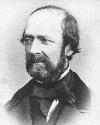
On 31 Mar 1851, Leon Foucault demonstrated his now-famous pendulum experiment at the Pantheon of Paris at the request of Napoleon Bonaparte, who had been informed of Foucault’s recent discovery on 6 Jan 1851.
In January, he had installed a long pendulum with a heavy bob in his cellar in the Arras Street of Paris. It revealed that the Earth was rotating underneath the swinging pendulum.
His original announcement of his discovery was in a French journal, but you an read his original words, in translation, describing his experiment reprinted with an introduction in Physical Demonstration of the Earth’s Motion of Rotation, by Means of the Pendulum.

On 31 Mar 1840, Sir Benjamin Baker was born, an English civil engineer who was the chief designer of the railway bridge over the Firth of the Forth, Scotland. It was built over a century ago, and is still in use by the trains of today. His other projects were varied, including the first Hudson River Tunnel (USA), and parts of the London Underground system. But it is the Forth Railway Bridge that stands most visible, durable and still admired by engineers today as a groundbreaking accomplishment. Today's book pick is: 100 Years of the Forth Bridge, by . The chapters of the book were written contributed by various experts at the time of the 100th anniversary of the opening of the bridge. Each chapter is detailed and full of historical information. Discussion of the engineering challenges that were overcome to make this significant bridge possible. The reader will come to understand why this bridge still stands while more modern infrastructure is being torn down and replaced. And in contrast, the book covers some of the earlier failed designs. It makes a fascinating read.
It is available from Amazon, typically about Used from $5.35. (As of earlier time of writing - subject to change.)
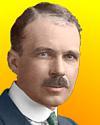 | God runs electromagnetics on Monday, Wednesday, and Friday by the wave theory, and the devil runs it by quantum theory on Tuesday, Thursday, and Saturday. |
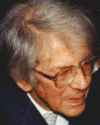 | One may characterize physics as the doctrine of the repeatable, be it a succession in time or the co-existence in space. The validity of physical theorems is founded on this repeatability. |
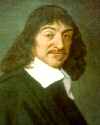 | I would think I knew nothing in physics if I could say only how things could be but, without demonstrating that they can’t be otherwise. |
| Before you look at today's web page, see if you can answer some of these questions about the events that happened on this day. Some of the names are very familiar. Others will likely stump you. Tickle your curiosity with these questions, then check your answers on today's web page. | |
| Births | |
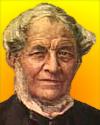 | A German chemist was born on 31 Mar 1811, who, with Gustav Kirchhoff, in c.1859 observed that each element emits a light of characteristic wavelength. With this tool, he soon discovered two new elements: cesium and rubidium. He also made a number of improvements in chemical batteries. Yet is none of these accomplishments for which his name is most widely remembered. Instead, it is the device, named after him, which he originated for use in flame tests of various metals and salts because its nonluminous flame did not interfere with the colored flame given off by the test material. What is the name of this device? |
 | René Descartes, born 31 Mar of a certain year, was a French mathematician, scientist, and “the father of modern philosophy.” His name is remembered in Cartesian geometry. He also wrote a major treatise on physics, though he decided not to publish that work during his lifetime. In which century did he live most of his life? |
| Deaths | |
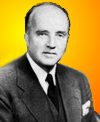 | Charles Herbert Best (1899-1978) was an American physiologist who, with Sir Frederick Banting, was the first to obtain (1921) a certain pancreatic extract, valuable to treat a widespread medical condition. But because Best did not receive his medical degree until 1925, he did not share the Nobel Prize for Physiology or Medicine awarded to Banting and J.J.R. Macleod in 1923 for their role in the work. Best also discovered the vitamin choline and the enzyme histaminase. He was the first to introduce anticoagulants in treatment of thrombosis (blood clots). What was the pancreatic extract Best prepared with Banting? |
| Events | |
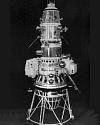 | On 31 Mar 1966, the U.S.S.R. launched Luna 10, from an Earth orbiting platform. The scientific instruments on board included a gamma-ray spectrometer, triaxial magnetometer, and a meteorite detector. Other instruments investigated the solar-plasma and infrared emissions. Luna 10 transmitted the Internationale during the 23rd Congress of the Communist Party of the Soviet Union. To what destination was Luna 10 launched? |
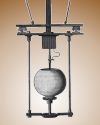 | On 31 Mar of a certain year, Wabash, Indiana, became the first town in which electric lighting completely replaced gas lamps. Four 4,000 candle-power Brush arc lamps, suspended 50 feet above the business district were powered by a small dynamo connected to a threshing machine’s steam engine. In what decade were the streets of Wabash first lit by electricity? |
Fast answers for the previous newsletter for March 30: The university would not permit women to officially register • Fritz London • bromine • ether • Halley’s Comet.
 If you enjoy this newsletter, the website, or wish to offer encouragement or ideas, please send feedback by using your mail reader Reply button.
If you enjoy this newsletter, the website, or wish to offer encouragement or ideas, please send feedback by using your mail reader Reply button. Your click on a Facebook, StumbleUpon, or other social button on the site webpages is also a welcome sign of appreciation. Thank you for using them.
© This newsletter is copyright 2020 by todayinsci.com. Please respect the Webmaster's wishes and do not put copies online of the Newsletter — or any Today in Science History webpage. (If you already have done so, please remove them. Thank you.) Offline use in education is encouraged such as a printout on a bulletin board, or projected for classroom viewing. Online, descriptive links to our pages are welcomed, as these will provide a reader with the most recent revisions, additions and/or corrections of a webpage. For any other copyright questions, please contact the Webmaster by using your mail reader Reply button.
--
If you do not want to receive any more newsletters, Unsubscribe
To update your preferences and to unsubscribe visit this link
Executive Real Estate Business Class
-
"It was like a man with wings. It wasn't like anything you'd see on TV or in a monster movie." ...
About the publisher
Search This Blog
Blog Archive
-
▼
2021
(585)
-
▼
March
(44)
- Newsletter for Wednesday 31 March.
- On This Day for March 30 - Failed assassination at...
- Newsletter for Tuesday 30 March.
- On This Day for March 29 - Dominion of Canada crea...
- Newsletter for Monday 29 March.
- The real history behind new film 'Ammonite', starr...
- On This Day for March 28 - Constantinople renamed ...
- Newsletter for Sunday 28 March.
- On This Day for March 27 - Cleopatra reinstated as...
- Newsletter for Saturday 27 March.
- Catch a break with spring savings
- On This Day for March 26 - Signing of Israel-Egypt...
- Newsletter for Friday 26 March.
- On This Day for March 25 - Robert the Bruce crowne...
- On This Day for March 24 - Exxon Valdez Alaskan oi...
- Newsletter for Wednesday 24 March.
- On This Day for March 23 - Lewis and Clark's retur...
- Newsletter for Tuesday 23 March.
- On This Day for March 22 - Murder at Jamestown, Ya...
- Newsletter for Monday 22 March.
- Roman medicine: 6 ways people stayed healthy
- On This Day for March 21 - Closing of Alcatraz pri...
- Newsletter for Sunday 21 March.
- On This Day for March 20 - AUM subway attack, Maud...
- Newsletter for Saturday 20 March.
- On This Day for March 19 - Iraq War begins, Glenn ...
- Newsletter for Friday 19 March.
- On This Day for March 18 - Election of Chen Shui-b...
- On This Day for March 17 - Vote to end apartheid, ...
- On This Day for March 16 - My Lai Massacre, Caroli...
- On This Day for March 15 - Julius Caesar assassina...
- On This Day for March 14 - Reelection of Vladimir ...
- Newsletter for Sunday 14 March.
- On This Day for March 13 - The planet Uranus disco...
- Newsletter for Saturday 13 March.
- Newsletter for Friday 12 March.
- Newsletter for Thursday 11 March.
- Newsletter for Wednesday 10 March.
- On This Day for March 9 - Battle of the Monitor an...
- Newsletter for Monday 8 March.
- Newsletter for Sunday 7 March.
- On This Day for March 6 - King Tut's tomb opened, ...
- On This Day for March 2 - Moroccan independence de...
- On This Day for March 1 - Establishment of Yellows...
-
▼
March
(44)
-
Blogroll
-
About
HistoryFact










0 comments:
Post a Comment